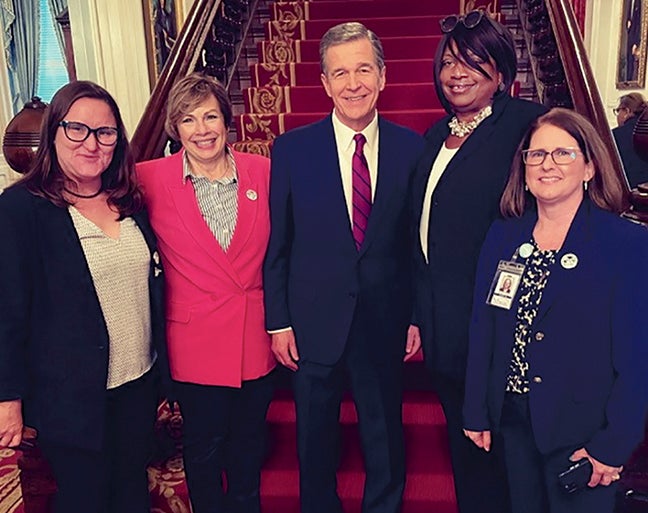RCCHC noted by Gov. Cooper at ‘State of the State’ address
Published 5:44 pm Tuesday, March 21, 2023
|
Getting your Trinity Audio player ready...
|
RALEIGH – As part of his State of the State address on March 6, Governor Roy Cooper signaled out two local women.

Shown with North Carolina Governor Roy Cooper are, from left, RCCHC Communications Director Leslie Wolcott, CEO Kim Schwartz, patient Phyllis Pillmon and Telehealth Nurse Jennifer Curley. Contributed Photo
In his remarks, Cooper will highlighted transformational investments the state has made in child care, workforce development, and broadband, and clean water infrastructure. The speech also focused on investing in the state’s workforce, which is the bedrock of North Carolina’s economy, growing the clean energy economy, supporting safe, healthy communities and more.
While addressing assembled state leaders, the Governor will recognized four North Carolinians with first-hand experience in these areas, to include Phyllis Pillmon of Ahoskie and Kim Schwartz, CEO of Roanoke Chowan Community Health Center
Pillmon receives health care through the Roanoke Chowan Community Health Center and is able to employ a hybrid plan that utilizes both in-person and telemedicine services to make sure she gets the care she needs. She sees her regular doctor in-person and is able to connect with specialists as far away as Charlotte for other consultations.
“For too many North Carolinians who lack access to high-speed internet, particularly in rural communities, telehealth hasn’t been an option. That’s about to change,” Cooper said.
The Governor said that thanks to funds from the federal government, North Carolina finally has the resources to expand broadband and connect every home in the state to high-speed internet.
“But closing the digital divide doesn’t just mean connecting people to the internet, it means making sure they can use it,” he noted, adding that North Carolina established the first ever Office of Digital Equity and Literacy to ensure people of all backgrounds can get the devices and training they need to connect to education, health care and the global economy through the internet.

